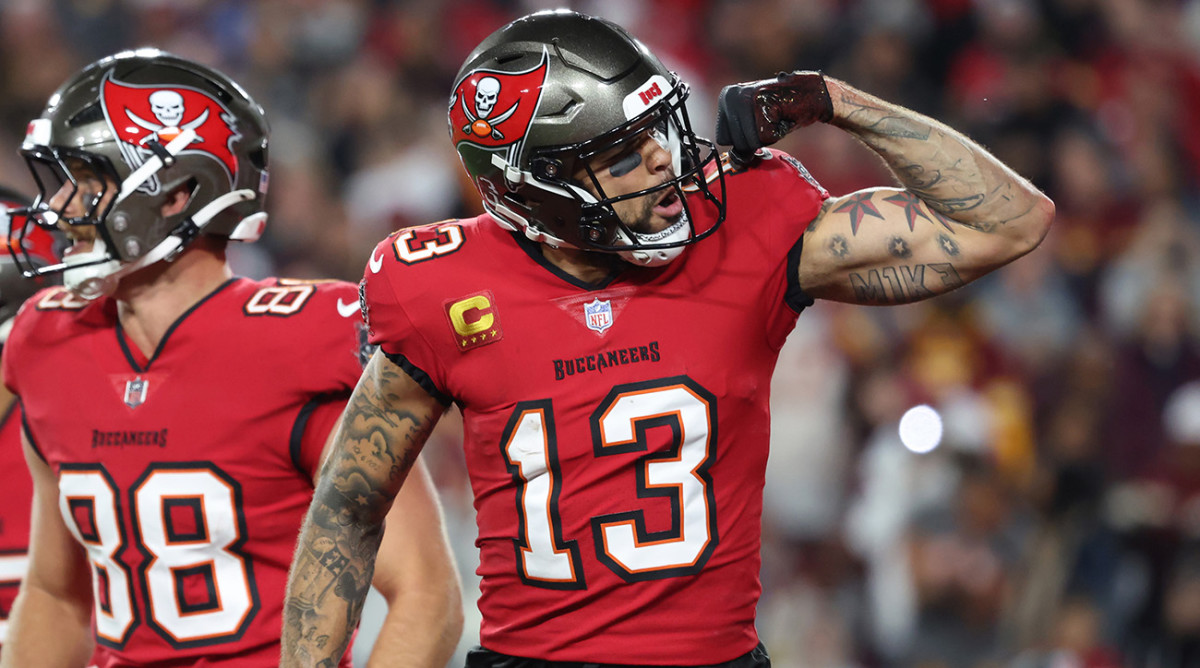The Tampa Bay Buccaneers, often called the Bucs, are one of the most dynamic and recognizable teams in the National Football League (NFL). Based in Tampa, Florida, the Buccaneers have built a fascinating legacy filled with ups and downs, iconic players, breakthrough seasons, and historic victories. From their formation in 1976 to winning their second Super Bowl championship in 2021 with legendary quarterback Tom Brady, the franchise has undergone a remarkable evolution.
In this article, we dive into the full story of the Tampa Bay Buccaneers, covering their history, notable players, Super Bowl triumphs, coaching staff, and expectations for the future of the franchise.
A Brief History of the Tampa Bay Buccaneers
The Tampa Bay Buccaneers joined the NFL as an expansion team in 1976, alongside the Seattle Seahawks. Initially, the franchise endured a difficult beginning, infamously losing their first 26 games, setting an unwanted league record. Despite these early struggles, the team gradually grew into a competitive force.
Their breakout came in 1979 when the Bucs clinched their first NFC Central Division title and advanced all the way to the NFC Championship Game. Unfortunately, success proved fleeting, and the 1980s and 1990s were marked by inconsistency and frequent coaching changes.
The Tony Dungy Era: Rebuilding the Foundation
In 1996, former Minnesota Vikings defensive coordinator, Tony Dungy, was hired as head coach. Dungy emphasized defense, discipline, and structure, laying the foundation for what would become one of the league’s most feared defenses. Under his leadership and defensive coaching, anchored by players such as Derrick Brooks, Warren Sapp, John Lynch, and Ronde Barber, the Buccaneers became regular playoff contenders.
Although Dungy couldn’t get the team to the Super Bowl, his legacy remained integral. The defensive core he built eventually carried the Bucs to their first NFL championship under a new head coach: Jon Gruden.
Super Bowl XXXVII: The Buccaneers’ First Championship
The Bucs made NFL history in 2002. Under Jon Gruden, the team finished the regular season with a 12-4 record. Known for its suffocating defense and opportunistic play, the Bucs dominated the NFC, eventually reaching the Super Bowl XXXVII, where they faced the Oakland Raiders — Gruden’s former team.
The Buccaneers annihilated the Raiders 48-21 in a game marked by five interceptions, including three returned for touchdowns. Linebacker Derrick Brooks, safety Dexter Jackson (Super Bowl MVP), and cornerback Dwight Smith played pivotal roles. The Bucs’ defense overwhelmed Oakland’s top-ranked offense.
This victory gave the Tampa Bay Buccaneers their first Super Bowl title, firmly cementing their place in NFL history.
The Post-Championship Years: A Period of Transition
After winning their first Super Bowl, Tampa Bay underwent several years of struggle and rebuilding. Coaching changes, injuries, and quarterback inconsistency led to a playoff drought and multiple losing seasons. From 2003 to 2019, the franchise made only two playoff appearances (2005 and 2007), both ending in early exits.
Despite the lack of deep playoff runs, these years were important for developing new talent and setting the stage for the next resurgence.
The Arrival of Tom Brady and Super Bowl LV

Everything changed in the offseason before the 2020 NFL season. The Bucs made a bold move by signing Tom Brady, a six-time Super Bowl champion formerly of the New England Patriots. The signing instantly turned Tampa Bay into a legitimate contender.
Brady brought along former teammates Rob Gronkowski and Leonard Fournette, and joined rising stars such as Mike Evans, Chris Godwin, and Devin White under head coach Bruce Arians.
The Bucs finished the 2020 regular season at 11-5 and stormed through the playoffs, defeating Washington, New Orleans Saints, and Green Bay Packers on the road to reach Super Bowl LV.
In Super Bowl LV, the Bucs dominated the defending champion Kansas City Chiefs 31-9 at their home stadium, Raymond James Stadium — making them the first team in NFL history to win a Super Bowl in their home venue. Tom Brady earned his seventh Super Bowl ring and fifth Super Bowl MVP.
Key Players in Buccaneers History
1. Derrick Brooks
Long considered the heart and soul of the Bucs’ iconic defense, Derrick Brooks was a 11-time Pro Bowler, NFL Defensive Player of the Year (2002), and a Hall of Famer. His leadership and intensity defined an era of Buccaneers football.
2. Warren Sapp
A dominant defensive tackle with unmatched explosiveness, Warren Sapp is one of the greatest interior linemen in NFL history. He was inducted into the Pro Football Hall of Fame in 2013.
3. Ronde Barber
The only player in NFL history with 45+ interceptions and 25+ sacks, Barber was a cornerstone in the Bucs’ secondary and known for his intelligence and durability.
4. Tom Brady
Though he spent only three seasons in Tampa, Brady transformed the culture and brought immediate success. His leadership, championship experience, and competitive fire made a lasting impact.
5. Mike Evans
As of 2025, Evans has recorded 10 straight 1,000-yard seasons, making him one of the most consistent wide receivers in NFL history. He’s a franchise legend still making an impact.
The Buccaneers Coaching Staff and Front Office
In 2022, following Bruce Arians’ retirement, Todd Bowles took over as head coach. A former defensive coordinator and head coach of the New York Jets, Bowles brought immense experience. The team’s success now hinges on his leadership and the ability of the coaching staff to develop young talent.
The front office, led by GM Jason Licht, has been instrumental in building competitive rosters, negotiating key contracts, and drafting foundational players. Licht’s decisions have helped shape two Super Bowl-winning teams over two decades.
Recent Seasons and the Road Ahead (2023–2025)
Following Tom Brady’s retirement in early 2023, the Bucs entered a new era. With Baker Mayfield under center, the team had a surprising bounce-back season, winning the NFC South and advancing to the playoffs despite being considered a rebuilding squad.
Young stars like Tristan Wirfs, Antoine Winfield Jr., and Lavonte David have helped maintain a competitive edge. The 2024 and 2025 offseason moves indicate the Bucs are focused on building a strong foundation through the NFL Draft and under-the-radar free agency signings.
As of the 2025 season, the Buccaneers are widely regarded as a team on the rise, combining young talent with experienced veterans.
Raymond James Stadium: The Home of the Bucs
Located in Tampa, Florida, Raymond James Stadium has served as the home of the Buccaneers since 1998. Known for its 65,000+ seating capacity and iconic pirate ship in the north end zone, it’s a fan-favorite destination and hosted multiple Super Bowls, including Super Bowl LV.
Fan Base and Culture
The Buccaneers have one of the most passionate fan bases in the NFL. From the team’s infamous “Creamsicle” era uniforms of the 1970s and 80s to their modern red-and-pewter kits, Bucs fans have remained loyal through the lean years and triumphs alike.
Annual traditions like the Gasparilla Pirate Festival symbolize the city’s spirit and are often celebrated alongside Buccaneers events.
Conclusion: The Future Looks Bright for the Tampa Bay Buccaneers
From their humble beginnings as an expansion team to becoming two-time Super Bowl champions, the Tampa Bay Buccaneers have carved out a prominent place in NFL history. With a mix of championship pedigree, dynamic new players, and solid leadership, the Bucs are poised to remain competitive for years to come.
As Tampa Bay continues to shape its identity in the post-Brady era, fans and analysts alike are eagerly watching the rise of a new generation of Buccaneer legends.



